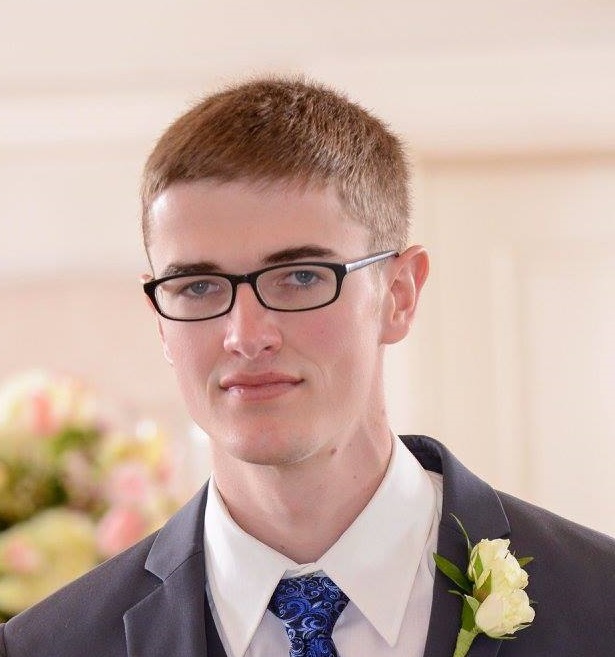Add more contrast
Inverted mode
Patrick Sullivan
About Me
I am a Master's student at in the Computer Science Department of Virginia Tech. My passion for learning
Computer Science extends far enough that I aim to teach and share it with others. My fascination with
Computer Science comes from applying the methods of computers that can help people in real, compassionate
ways. My aim as a teacher and computer scientist is to mix the analytical process with personal insight to
both help others and improve myself.
Curriculum Vitae: Download
My Experiences
- Current Master's Student in the Computer Science Department of Virginia Tech
- Working towards Virginia Tech's Future
Professoriate Certificate
- Teaching experience in elementary, undergraduate, and graduate school settings
- Exercises leadership and mentorship in many roles: as an Eagle Scout, Graduate Teaching Assistant, and
Instructional Lead
- Interdisciplinary work in research: applying Computer Science towards societal issues in Psychology
- Professional software development experience at the United States Postal Service
and Sandia National Laboratories
- Volunteers teaching expertise as part of outreach and to share my passions for Computer Science and learning
My Teaching Philosophy
I believe motivation, not knowledge, is the most important gift educators give to students. A curriculum focused
on the “why this is important” allows students to be curious about alternatives that accomplish the same goal or
expanding the concepts further than shown in the classroom. For example, it is vital to learn multiple sorting
algorithms and data structure types as a computer scientist because each has varying levels of complexity,
efficiency, and different use cases. The path that’s taken there matters even if the destination is the same,
and this applies to teaching as well. Motivation is the primary driver behind the transformative learning
process that students can integrate into their lifelong self-improvement. Once this motivation is established
the teacher can then migrate towards holding a mentorship role, who advises students on difficult choices or on
paths they haven’t considered. I do not recoil from my own mistakes or the mistakes of the students, but
actually show these cases to foster an environment where new ideas are always considered for any positive
elements that lead to a greater understanding of the issue at hand. Mistakes will happen naturally and
practicing the critical reflection of our own assumptions will aid us within programming, Computer Science, and
the rest of life. This classroom environment keeps students aware of their own learning process and able to
recognize their progress, allowing for them to evaluate themselves honestly and see how to grow in the future.
Diversity Statement
I grew up in the rural middle of America, where “tradition” was an excuse for far too many unfortunate actions,
and the problems of the world were considered both out of our reach and couldn’t reach us. The religion and
school system you were associated with could easily isolate you from the rest of the town, where the time and
effort you invested would only be seen from within that group. This included the local university, which boasted
about being a center for new ideas and technological growth, but rarely involved the town in the process behind
or the beneficial results of them. Success to the university was when an engineering alumnus was promoted to
vice president at the international oil corporation known for its environmental disasters at that very time.
This only slightly perplexed me when I was younger, but has gradually grown since then into my feeling of
absolute bewilderment.
I have found some ways to rectify the isolationism that I saw growing up, but am working to broaden it even
further. This began when I became a mentor and leader within the Boy Scouts of America , where I guided and
learned alongside peers of different races, socioeconomic classes, and levels of disability (mental or
physical), or from different socioeconomic class. These experiences fundamentally shaped my views on teaching,
away from the formal hierarchy of passing knowledge down, and towards a shared experience where everyone
contributes in unique ways. This environment must be approachable for everyone to discuss the conflict between
ideas, even those that conflict with the teacher’s idea. The environment I construct for a class to participate
in must be able to answer several questions: Would this be a competitive or cooperative space between myself and
students? What is my personal connection to the concepts and this learning environment? What assumptions am I
making about students being like me, when they are not? This mindset is especially needed in teaching Computer
Science, which has seen years of negative gender stereotypes being proliferated and unchallenged from the
youngest classrooms to entire software industry careers. The computer applications of today can be crafted to be
just as destructive or divisive as they can be inclusive or empowering. The responsibility is on the teachers of
Computer Science to confront students with the ethical issues of computing, so they are mindful of the impacts
they can have on the world. All teaching that seek to empower students should devote efforts towards applying
their knowledge and power with fairness and justice.
Last Updated: December 5, 2018
